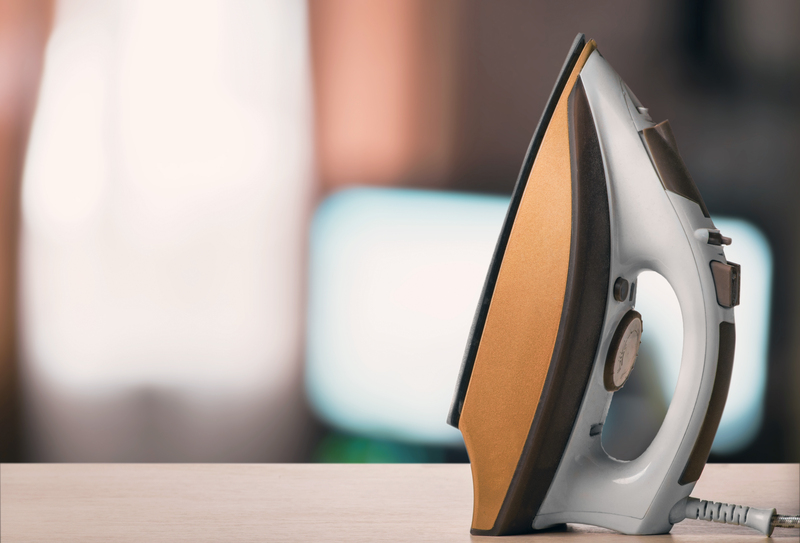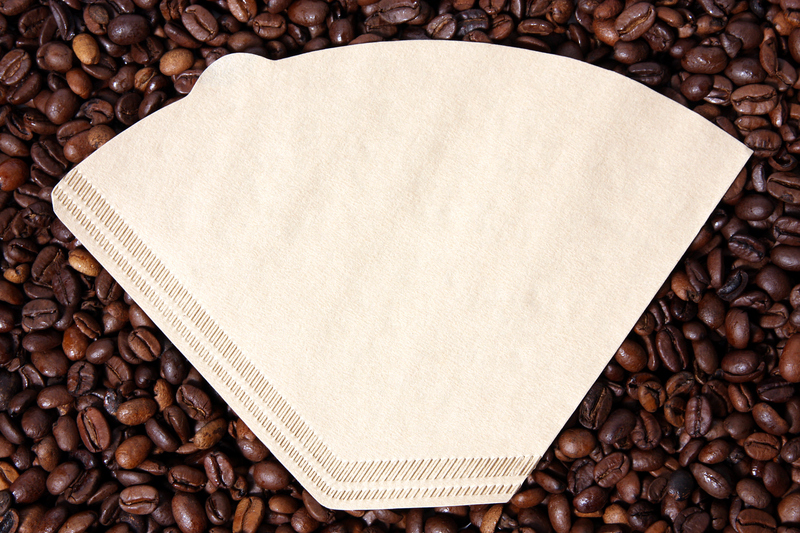Gleaming Gems: Master the Art of Jewellery Cleaning
Posted on 22/08/2025
Gleaming Gems: Master the Art of Jewellery Cleaning
Are your favorite rings losing their sparkle? Does your treasured necklace appear dull and lifeless? If so, now is the time to discover the ultimate guides and methods for jewellery cleaning. Get ready to unlock the secrets to keeping your precious pieces shining bright with our comprehensive, SEO-optimized article about masterful jewellery care.
Why Clean Your Jewellery?
Jewellery is more than just an accessory; it is a reflection of our personality and often holds sentimental value. Whether it's a cherished family heirloom or a contemporary gemstone piece, maintaining its brilliance is essential. Regular jewellery cleaning not only preserves its aesthetics but also ensures its longevity and hygiene. Dust, dirt, perfume, sweat, and even natural skin oils can rob your diamonds, gold, and silver of their original gleam, potentially causing lasting damage.
- Retaining Sparkle: Build-up of grime can dull gemstones and metals.
- Preventing Damage: Dirt attracts moisture and pollutants, which can corrode metals and creep into gemstone settings.
- Health Considerations: Unclean jewellery can host bacteria and allergens.
- Maintaining Value: Well-cared-for pieces retain their value and appeal over time.

Understanding the Basics of Jewellery Maintenance
Cleaning jewellery involves much more than a quick polish. Each type of metal and gemstone demands specific handling techniques. Before diving in, consider the composition and delicacy of your jewellery. The following sections will guide you through cleaning practices for a wide range of jewellery materials: gold, silver, platinum, diamonds, pearls, and other gemstones.
The Anatomy of Light and Brilliance
Jewellery sparkles due to the way its surfaces reflect and refract light. When dust and oils coat the surfaces or creep beneath prongs and settings, even the most dazzling diamonds can appear lackluster. Regular and careful cleaning restores the pathway for light, returning that much-loved brilliance.
How Often Should You Clean Your Jewellery?
The frequency of cleaning depends on how often you wear your pieces and what activities you engage in. For daily-wear items such as engagement rings or wedding bands, a gentle clean once every week or two is advisable. For special occasion pieces, a thorough cleaning every few months is sufficient.
- Everyday Jewellery: Clean every 1-2 weeks.
- Occasional Wear: Deep clean every 3-4 months.
- Professional Cleaning: Once or twice a year for all precious pieces.
DIY Jewellery Cleaning: Home Methods That Work
Home cleaning is effective for most jewellery items, provided you use the right techniques. Here are some proven methods for cleaning your jewellery at home using household ingredients and simple tools.
Gold Jewellery
Gold is resistant to tarnish but can lose its shine due to dirt and grease. Here's how to clean gold jewellery:
- Prepare a Cleaning Solution: Mix mild dish soap with warm (not hot!) water.
- Soak and Swirl: Let the jewellery soak in the soapy water for 15-20 minutes.
- Brush Gently: Use a soft-bristled toothbrush to clean hard-to-reach spots.
- Rinse & Dry: Rinse with lukewarm water and blot with a soft cloth.
Silver Jewellery
Silver tarnishes when exposed to air, developing a dull, gray-black patina. The following cleaning approach for sterling silver jewellery is both gentle and effective:
- Baking Soda Paste: Mix baking soda with a few drops of water to create a paste.
- Rub Gently: Rub the paste onto the jewellery using your fingers or a soft cloth.
- Rinse Thoroughly: Wash under running water and dry immediately to prevent water spots.
Diamond Jewellery
Diamonds attract oils and dust, which can dull their sparkle. Keep your diamond rings and earrings pristine:
- Soak: Use a solution of warm water and mild dish soap.
- Brush: Clean every crevice carefully with a soft baby toothbrush.
- Rinse: Use clean water to rinse off.
- Pat Dry: Use a lint-free cloth for best results.
Pearls and Delicate Gemstones
Pearls and many colored stones (opals, emeralds, turquoise) are porous and sensitive. Never soak pearls or use harsh chemicals for pearl jewellery cleaning.
- Wipe After Wear: Always wipe pearls after wearing with a very soft, damp cloth.
- Occasional Cleaning: Mix a solution of lukewarm water and a tiny bit of mild soap. Dip a clean cloth in, wring out, and gently wipe each pearl.
- Air Dry: Lay flat to dry thoroughly before storing.
Professional Jewellery Cleaning Services
While home methods are suitable for most routine cleaning, there's still nothing like a professional jewellery cleaning. Experts use ultrasonic cleaners, steam cleaning, and specialized polishing tools that deliver deep cleaning without the risk of damage. Consider professional servicing for:
- Intricate or antique pieces
- Loose gemstones or delicate settings
- Badly tarnished items
- Annual maintenance of valuable jewellery
Tip: Jewelers also inspect pieces during professional cleaning, informing you of any loose prongs or potential repairs, preventing accidental loss of stones.
Cleaning Techniques to Avoid: Protect Your Gems
Some cleaning methods can damage your jewellery irreversibly. Always avoid:
- Harsh chemicals (bleach, ammonia, acetone)
- Toothpaste (highly abrasive!)
- Boiling water for gemstones like opals, pearls, or emeralds
- Hard brushes or rough cloths
Always follow manufacturer and jeweler guidelines and consult an expert if unsure.
Special Care for Different Gemstones
Mastering the art of jewellery cleaning involves knowing the unique properties of individual gems:
Diamonds
Though extremely hard, diamonds can chip and lose brilliance if impacted. Clean regularly with mild soap and water, avoid harsh chemicals, and store separately to prevent scratches.
Sapphires and Rubies
Sapphires and rubies are very durable. Clean safely with soapy water and a soft brush. Avoid strong ultrasonic cleaners with treated stones.
Emeralds
Emeralds contain natural inclusions ("jardin") and are often oil-treated. Clean only with damp, soft cloths -- avoid soaking, heat, or ultrasonic cleaners.
Opals and Pearls
Organic gems like opals and pearls are very absorptive. Store away from heat and chemicals, and never submerge in water.
Expert Tips for Jewellery Cleaning Success
- Store jewellery individually: Using soft pouches or lined boxes prevents scratching.
- Remove jewellery: Before bathing, swimming, or applying lotions.
- Inspect regularly: Check settings for any loose stones.
- Keep away from household cleaners: Many contain harsh chemicals that can damage metals and stones.
- Use professional products: Purchase jewellery cleaner solutions specifically formulated for your gem type.
Jewellery Cleaning: Frequently Asked Questions
Is ultrasonic cleaning safe for all jewellery?
Ultrasonic cleaners use high-frequency sound waves but are not safe for all types of jewellery. Avoid using on pearls, opals, emeralds, and antique pieces. When in doubt, consult a jeweller.
How can you prevent tarnish on silver jewellery?
Store silver pieces in air-tight bags with anti-tarnish strips. Regular, light cleaning and avoiding exposure to humidity and chemicals (perfume, lotion) will keep your silver jewellery bright.
Can you use vinegar to clean jewellery?
Vinegar is too acidic for most gemstones and pearls. It may be used carefully on plain, solid metal jewellery but always rinse and dry thoroughly.
How do you clean costume and fashion jewellery?
Never soak fashion jewellery, as it may have glued components or plating that can peel. Gently wipe with a slightly damp, soft cloth and dry immediately.
Jewellery Cleaning Checklist: A Step-by-Step Guide
- Identify material and gemstones - consult previous receipts or a jeweller if unsure.
- Select your cleaning method - gentle for delicate gems, more thorough for gold and diamonds.
- Prepare a soft workspace - lay a towel or soft cloth to protect surfaces and prevent loss of small items.
- Assemble tools - soft toothbrush, mild soap, bowls of water, polishing cloths.
- Start with the lightest cleaning needed - escalate only if needed, always monitoring for adverse effects.
- Dry and store properly - never put damp jewellery away.
Eco-Friendly Jewellery Cleaning Solutions
If you prefer green alternatives, consider these earth-friendly tips:
- Bicarbonate of soda: Cleans silver naturally when mixed with water.
- Lemon juice and olive oil: Polishes gold with a soft cloth (avoid on gemstones).
- Cornflour paste: Buffs out tarnish on silver.
Storing Jewellery After Cleaning
Proper storage ensures your pieces stay gleaming between cleans:
- Store each piece separately to avoid scratching.
- Keep away from direct sunlight and humid conditions.
- Use acid-free paper or anti-tarnish pouches for silver.
- Hang chains to prevent tangling.

Conclusion: Shine On with Masterful Jewellery Cleaning
Mastering the art of jewellery cleaning is vital for preserving the beauty, value, and sentiment of your favourite pieces. By following the tips and best practices outlined above, you'll prevent dullness, avoid accidental damage, and keep your jewellery collection sparkling for years to come. Whether you choose convenient at-home methods or opt for professional cleans, regular care is the secret to letting your gems gleam like the day they caught your eye.
Ready to enjoy radiant jewellery every day? Pick up your polishing cloth and give your collection the shine it deserves!
Additional Resources
- Gemological Institute of America: Guide to Gem Cleaning
- Jewellery Association - Jewellery Care Best Practices
- National Jeweler: Cleaning Different Jewelry Metals
Latest Posts
Transform Your Space: Cleaning Curtains the Right Way
Expert Tips for Streak-Free Window Perfection
Discover the Significance of Clean Air for Homes and Workplaces
Expert Techniques for a Spotless Car Inside and Out
Essential Guide to Maintaining Your Velvet Curtains' Elegance



